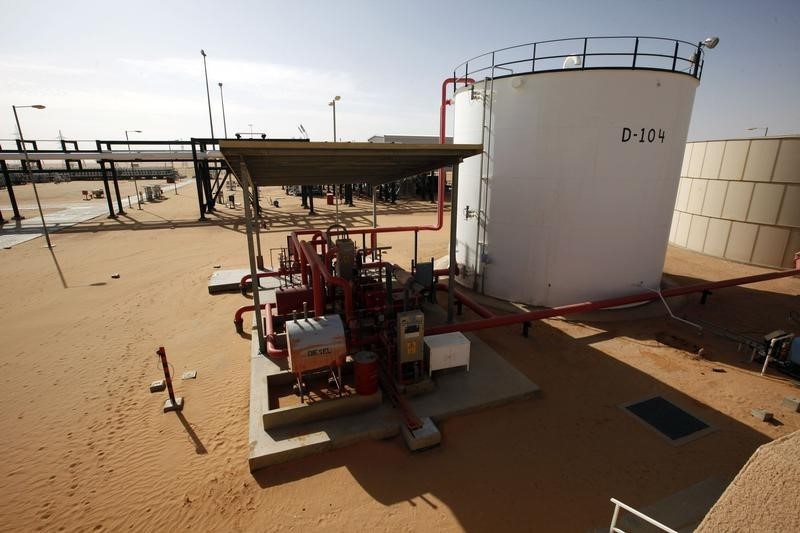Investing.com - Crude prices dipped in Asia on Tuesday with investors keeping a close eye on events in the Gulf and Middle East over a diplomatic row between Qatar and key Arab nations and looking ahead to industry data on inventories.
On the New York Mercantile Exchange crude futures for July delivery fell 0.55% to $47.14 a barrel, while on London's Intercontinental Exchange, Brent eased 0.44% at $49.23 a barrel.
Ahead, the American Petroleum Institute (API) will release its estimates of crude and refined product inventories at the end of last week, followed by the Energy Information Administration (EIA) with official data on Wednesday. The Energy Information Administration will issue its month short-term Energy Outlook report Tuesday.
Analysts expect a 3.447 million barrels drop in crude supplies at the end of last week, along with a build of 697,000 barrels for distillates and a 271,000 barrels build for gasoline. The API and EIA figures often diverge.
Overnight, crude futures tumbled to settle lower, after Saudi Arabia and other Arab states severed diplomatic ties with Qatar, fuelling concerns about a disruption to the global deal to curb the glut supply.
Crude futures initially rose, as investors anticipated that supply disruptions could support oil prices following news that a group of Arab nations, led by Saudi Arabia, severed diplomatic ties with Qatar, accusing it of fuelling terrorism.
Gains, however, were short-lived, as fears grew that geopolitical tensions in the Middle East could threatened the Organization of the Petroleum Exporting Countries’ (OPEC) accord to tackle oversupply in the industry, which has pressured prices over the last three years.
Qatar with a production capacity of about 600,000 barrels per day (bdp) is one of Opec’s smaller oil producing nations.
Investors fear that should geopolitical tensions in the Middle East escalate, Qatar may abandon its production quota previously agreed under the Opec deal, which could derail the global pact to extend production curbs until March.
“This means Qatar may have little reason to keep the production quota and if that happens, it might encourage other OPEC members to cheat too.” Phin Zibell, Senior Analyst at National Australia Bank said.
The turmoil in the Middle East comes amid concerns that rising U.S output could exacerbate the oversupply problem, as U.S. crude production has averaged more than 9.3 million bpd for four straight weeks, and is expected to reach nearly 10 million bpd by next year.
